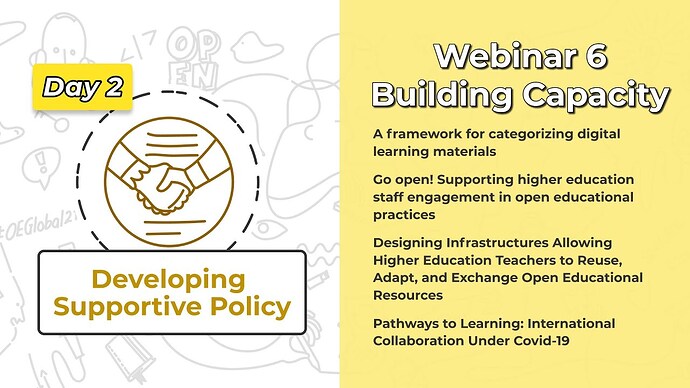Ben Janssen (OpenEd Consult), Robert Schuwer (Fontys University of Applied Science)
In practice, most lecturers/teachers and learners use a mix of digital learning resources fitting for what s/he wants to accomplish in the learning process. Open Educational Resources may be part of them. To develop open policies or support lecturers/teachers and learners in their adoption of OER, using a dichotomy of open versus closed is insufficient. In many contexts concepts such as semi-open resources and commercial resources are also meaningful.
To our knowledge, only for the category “Open Educational Resources” there is a generally accepted definition. There seem to be none for semi-open digital resources and commercial resources, and how do the two concepts relate to one another and to OER?
For questions like that, we propose a framework that allows a differentiated categorization of digital learning resources, and which gives guidance for institutional policy development. Our framework is an extension of a framework developed earlier by David Wiley.
We categorize digital learning along two dimensions: accessibility and adaptation rights. This allows us to position the different types of learning resources used in public Dutch Higher Education as “open”, “semi-open”, “closed”, “commercial” in relation to each other. For each of these types of digital learning resources, a definition is suggested. For OER we have used the definition of Creative Commons.
The framework has proven useful in designing an institutional vision and policy regarding the use of digital learning resources, and more specifically OER in Dutch Higher Education. Examples will be given during the presentation.
Extended abstract: OE_Global_2021_paper_107.pdf 📄
Webinar Information
This presentation is part of Webinar 06 Building capacity taking place in your local time → .
Webinar Access (registered conference participants only):
![]()
![]() Go to Webinar 06
Go to Webinar 06
UNESCO OER Action Area: Building capacity
Language: EnglishSee the other presentations that take place in this webinar.
Presentation Recording
Participate
Before the webinar the authors will be asked to reply below with links to their presentation materials, related videos, and other relevant links, as well as prompts for discussion here.
For anyone that missed the live session, an archive will be posted here as soon as possible.
Conference participants are urged also to reply below with questions, comments for the presenters or to share related resources.
